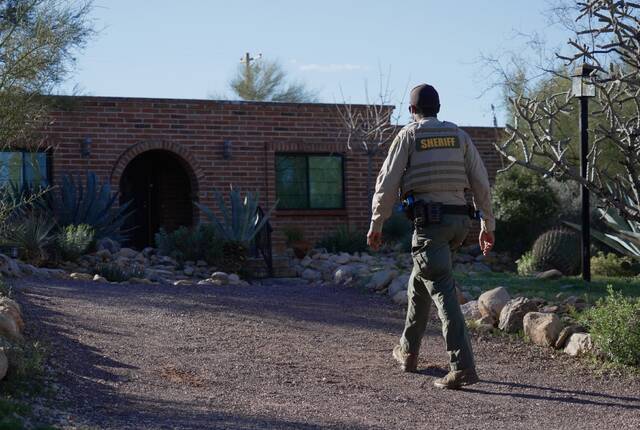Think you know all there is to know about Pittsburgh? Author Ed Simon is betting that you don’t.
He’ll be talking about his nonfiction book, “An Alternative History of Pittsburgh,” at noon March 26 in the Trust Arts Education Center in downtown Pittsburgh, to open the two-day Core Conversations series presented as part of the Pittsburgh Humanities Festival.
While Simon admits that Pittsburghers generally know a lot about their city, he wants to talk about some lesser-known stories and explore new ways of looking at familiar ones.
“An Alternative History” is the sixth book written by Simon, a native Pittsburgher currently living in the Washington, D.C, area.
“I always wanted to have my Pittsburgh-like book,” he said. “I’m very much intrinsically, in my mind, connected to Pittsburgh and I was interested in doing basically a brief overview of what I find important about Pittsburgh. I’ve tried to tell the story in a way that’s very personal, even though it’s not about me, per se.”
A graduate of Washington & Jefferson College and Carnegie Mellon University, Simon is a staff writer for the literary book review website, The Millions, and also a freelance writer and critic.
One of his freelance gigs is with Belt Magazine, a Cleveland-based online publication that offers “thoughtful, nuanced writing and journalism by and for the Rust Belt.” His book is published by its independent publishing arm, Belt Publishing, which specializes in anthologies “by and for residents of often misrepresented cities.”
The book contains 40 short chapters, each about 1,000 words, arranged in chronological order.
“I don’t see this as an academic book in a historical sense, but more an assortment of things that I wanted to place in connection with one another to allude to a story I wanted to tell about Pittsburgh,” Simon said. “The basic argument that the book settles on, which I discovered as I was writing it, is that the story of Pittsburgh is the story of America. In this one small spot, Pittsburgh is really representative of the entire country in a way that maybe bigger, more celebrated places really aren’t.”
The book tells stories of familiar figures, including Andrew Carnegie, Henry Clay Frick and the Pittsburgh Steelers, but Simon looks at aspects of their stories that other writers might not have covered — as with the 1892 shooting of Frick by anarchist Alexander Berkman.
“What interested me was something that was a little more writerly – what was Henry Clay Frick like, why did Berkman think he could get away with it, what did people in the city think upon hearing this had happened?” Simon said.
Simon also gives lesser-known, less-savory citizens their due.
“In the 1850s, Pittsburgh had a nativist, demagogic mayor named Joseph Barker who was anti-immigrant and anti-Catholic. He re-positioned the police force into his almost private secret-service police,” Simon said. “He was only mayor for about one year.
“He fell onto the tracks while he was drunk, and died by getting hit by a train,” he said. “I think he is one of two mayors in the world who died in this very specific, violent, weird way.”
Attendees at Simon’s Core Conversation also will hear about the little-known Pittsburgh Agreement, a treaty signed in the city in 1918 that led to the creation of the independent nation of Czechoslovakia.
“I explore themes such as colonialism, industry and labor, capitalism and immigration that make up the United States, but are really essential to understanding Pittsburgh,” he said.
Presented by Pittsburgh Cultural Trust and the Humanities Center at Carnegie Mellon University, this year’s Pittsburgh Humanities Festival takes place Monday through March 27 in the city’s downtown Cultural District. In addition to the Core Conversations, it includes ticketed performances by Broadway star Ali Stroker and Sh!t-face Shakespeare.
The Core Conversations feature community leaders, artists, academics and others from Pittsburgh and beyond discussing history, policy and politics, racial inequities, art, culture and more in an exploration of what it means to be human. A $10 pass ($5 for students) provides access to all 14 conversations.
For a pass or for more information on the festival, visit trustarts.org.








